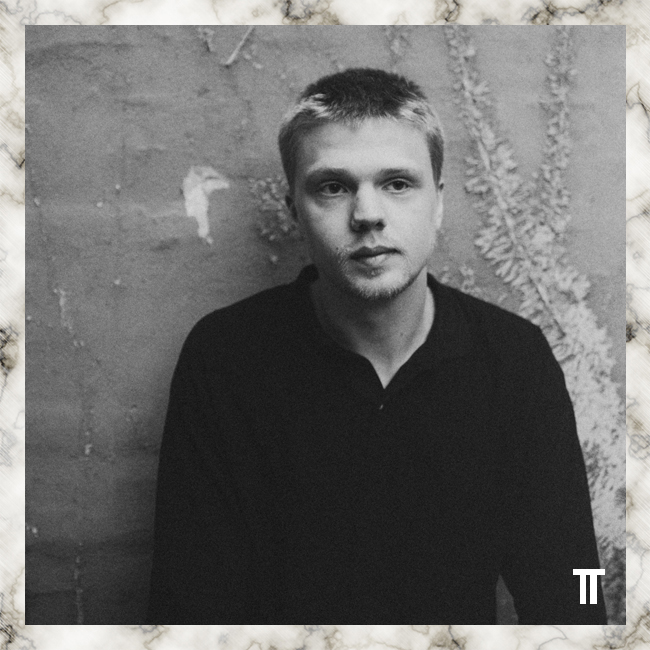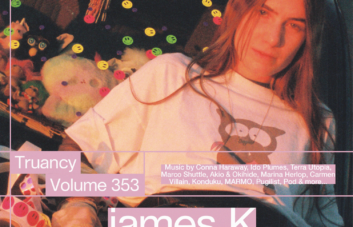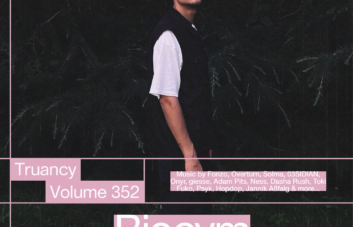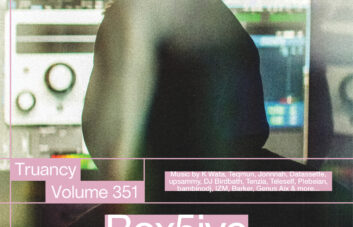Our latest Truancy Volume comes from producer and DJ, Henrik Koefod (aka Erosion Flow), an emerging talent out of Copenhagen. Erosion Flow first grabbed our attention in 2014 with his electric debut EP on George Fitzgerald’s ManMakeMusic label. Garnering quick support, tracks like ‘Bedroom Jam’ saw airtime on Ben UFO’s Rinse FM show and George Fitzgerald’s BBC Radio 1 Residency. This month, Erosion Flow released the energetic and percussion laden Spectrums Vol. 1, first of a two part EP on Martyn’s 3024 label. Inspired by the ‘sound of colour’, each track ‘represents specific sonic and colourful spectrums.’ Featuring slithering synths and murmuring samples, the EP subtly blend elements of house and techno, shaping them into something unfamiliar. Close listeners may have heard the B side ‘Emeralds’ in Amy Becker’s recent FACT Mix, where its inclusion highlights his productions’ range as well as applicability to the dance floor. The tracks are no doubt influenced by his diverse Copenhagen club night, Rare Nights, which books artists from various ends of the spectrum. It should then come as no surprise that his Truancy Volume is a high energy affair that incorporates a multitude of genres. Featuring remixes from DJ Fett Burger, Blondes and Kowton, and unreleased material from Central and Jeppe Willumsen, the mix shows Erosion Flow’s breadth of influence and strength as a young selector. We asked Koefod a few questions about his musical influences, production process and the status of the Copenhagen club scene, and are excited to share his thoughts along with this mix.
Your latest EP, Spectrums Vol. 1, is a bit of a stylistic departure from your first EP on ManMakeMusic. Would you say this was a conscious decision or simply a reflection of your interests and growth as a producer? “I think it’s been an unconscious decision, just getting new inspiration from doing club nights and from staying open to different music. I also feel that I’ve become better at turning my ideas into more concrete tracks since my first record. With Spectrums I believe I’ve come a step closer to a more full-fledged expression as an artist, which I hope people can hear.” Have you made any changes to your studio or process since the creation of your first EP? “I’ve been bringing in a bit more hardware to the process, but I still pretty much work the same way as I’ve always done – based around finding sounds to begin with by sampling records, synths or whatever I can get my hands on.”
You seem to pull elements from many different genres for your own productions. What music did you grow up listening to and how have your interests changed over the years? “I grew up listening to a lot of different music, my older brothers would play me everything from The Roots to Jamiroquai and Fugees. As far as I can remember, I’ve always had an interest in discovering new music, whether it was through video games, at the public library or on the internet. I started getting into electronic music when I was around 13-14 years old. When I make music, I think I unconsciously mix elements from all the different genres I’ve been into, but like, it’s not something I’ve ever been planning to do.”
You seem to enjoy using vocal samples in your work, at varying quantities and for different effect. How do you go about choosing samples and at what point in your production process do you work them in? “The last few years I’ve been finding it harder to sample vocals off of random records. I think it makes it harder for me to feel the music I make, if there’s no relation to the sounds I use. It’s quite intuitive with vocals and it’s often either mistakes where I flip the vocal in some weird way and it suddenly works, or if I just come across something I think would fit into the track and add something to it.”
Rare Nights is a club night you co-run in Copenhagen. How did that get started and what is your level of involvement? “Rare Nights is a club night I’ve been running together with five of my good friends for nearly five years now. We started doing parties after we met in high school, because we all were into either DJing or producing. There weren’t any clubs or places that would play the music we were into, in the city we grew up, so we just did our own thing. We’ve been doing parties in Copenhagen since we’ve moved here and it’s still a collaborative effort between all of us to make the nights happen.” How has the music scene in Copenhagen changed since opening Rare Nights? How would you like to see it change in the future? “I feel that we’ve really established ourselves over the course of this year by consistently doing solid bookings. The club scene in Copenhagen is really healthy at the moment and I would like to think we’ve helped contribute to that. This year we’ve brought over a quite diverse list of artists such as Mumdance, Hodge, Koehler and Florian Kupfer. We just want to book the artists that we are into, and we’ve never really been to keen on sticking to any specific genre of music.”
Did you start as a DJ before producing your own tracks? Has DJing affected your outlook or production methods? “I started DJing around the same time as I started producing, around six to seven years ago, but it wasn’t until some years later I started to invest as much time in it as the production side of things. When I’m making the tracks, I never really think about how they would play out, so I wouldn’t say I’ve let DJing affect my production methods. But I definitely think DJing has helped me a lot in finding which direction I wanted to go with my own music, just by becoming familiar with and playing a lot of different genres of club music.“
How did you go about selecting the tracks for the mix? How does it differ from preparing for a DJ set? “I started out with picking some of the records I’ve been playing out recently, whereafter I started puzzling everything together. I wanted the mix to have a natural increase of intensity, while still making sense and fitting together from start to finish. I would definitely be aware of not fucking up the vibe if I was playing at a club, so that’s probably where this mix is a bit different from a club set. I guess the beginning of the mix shows that with some more like eclectic and I guess weirder house tracks, before it slowly dives into more atmospheric techno and drum machine workouts, which would give a more straight up idea about what I would play in a club.”
Tracklist:
Pelifics – Capitello (DJ Fett Birgers Mosseporten Ghetto Mix) [Full Pupp]
Central – Mercy [Unreleased]
Scott Grooves – Nitty Gritty [Natural Midi US]
Henning Baer – 14VAC [K209]
Steve Simpson – Chicagocid [1ØPILLSMATE]
DJ Assassin – Beats For Ya Feat [Cross Section Records]
Jeppe W. – Untitled01 [Unreleased]
Max McFerren – Hunting (Blondes Remix) [Allergy Season]
Roberto – Tiziani [Fossil Archive]
Erosion Flow – Emeralds [3024]
J. Tijn – HEHF [WNCL]
Lo Shea – Root Causes (Kowton Remix) [Transit]
Answer code request – Calm Down [MDR]
Lee Gamble – Steelhouse [PAN]
Jackmaster Hater – Drum Track [Warehouse Box Tracks Records]
Fear Tha World – Houz Mon [Anotherday Records]
Basic Channel – Radiance II [Basic Channel]
Tim Hecker – Rainbow Blood [Kranky]
Erosion Flow: Facebook, Soundcloud, Twitter
Words by Taylor Trostle




